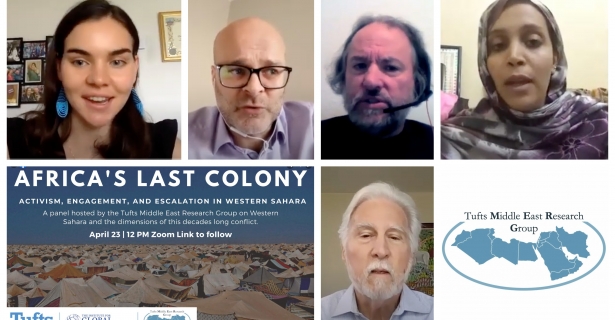On Friday, April 23, the Middle East Research Group (MERG) was joined by academics and activists to shed light on an issue not often discussed, the sovereignty of the Western Sahara. The event brought together experts working in the United States, Europe and The Western Sahara to discuss the complicated status of Western Sahara as a self-governing territory of Morocco.
Having spent a considerable amount of time in Morocco but never having traveled south of Essaouira, my perception of the issue was blown open by Nazkha al-Khalidi, a Sahrawi activist. Her frustration with the policing and utter lack of human rights was evident as the panelists questioned the role of the United States in indirectly endorsing the occupation and human rights violations occurring in the Western Sahara. The United States often claims to uphold human rights across the globe, yet the Trump administration formally recognized the Western Sahara as Moroccan territory despite not holding a referendum to hear the voice of the Sahrawi people. Without a referendum, our panelists argued that this amounted to a land grab on the part of Morocco, no different than Russia annexing a portion of Crimea.
Why is the United States so quick to condemn an adversary for violations of sovereignty, yet fails to hold allies to the same standard? Our panelists made all the attendees think carefully about US foreign policy but offered hope that a new administration could revoke the earlier declaration of territory and steer the POLISARIO Front and Moroccan government closer to a new peace settlement. Fissures grow ever greater in the liberal world order so long as countries like Morocco continue ignoring international law mandating self-determination for former European colonies. Can trends like this continue and correspond with a decrease in violence and human tragedy? It has not yet, and our panelists seemed to think it would only get worse from here.

